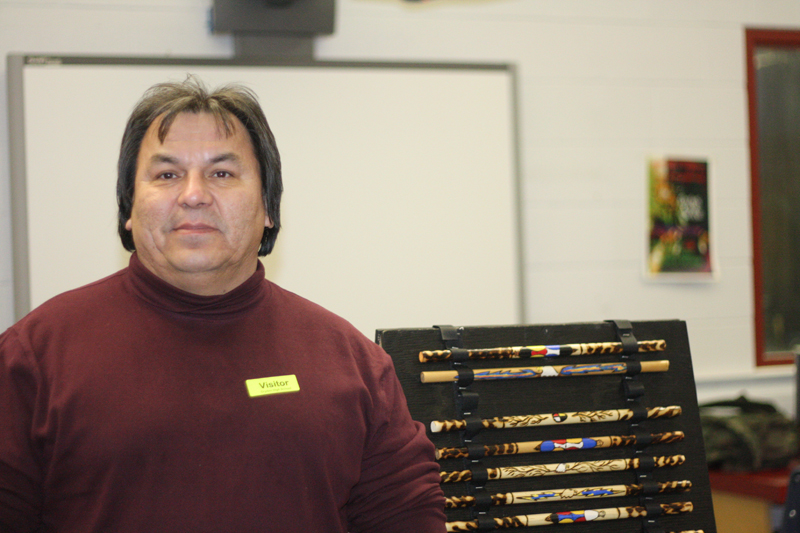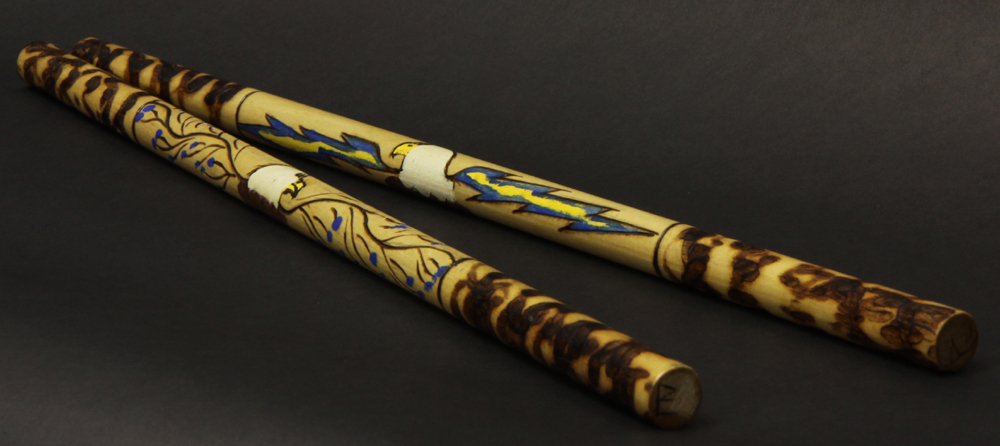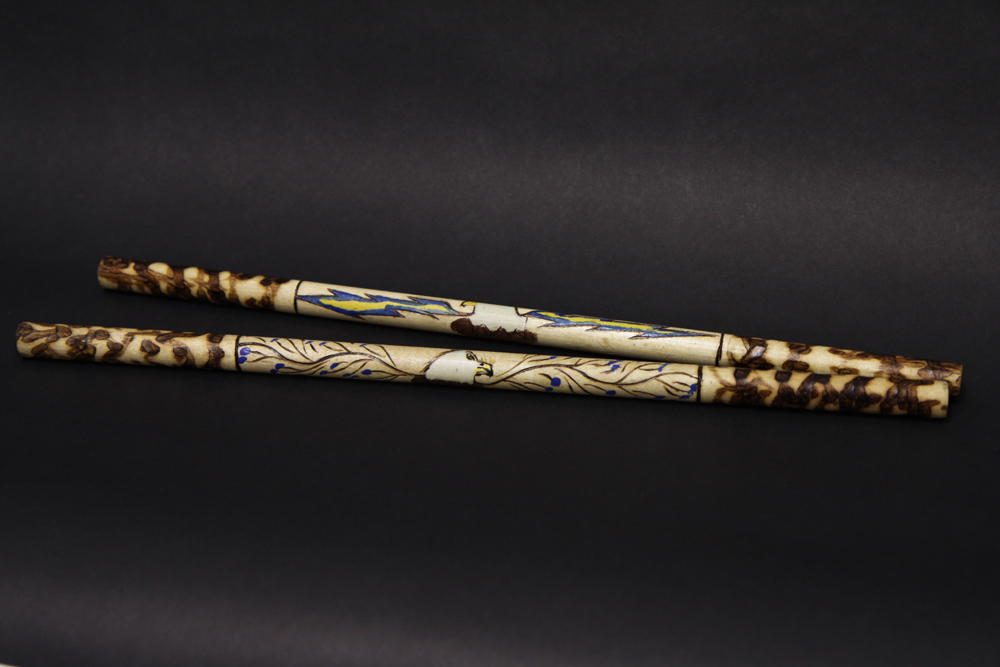Percy Cameron lives in Kenora Ontario and works as a court worker. As a court worker, he is responsible for helping offenders, especially young Aboriginal offenders, understand the charges laid out against them and ensuring that they are aware of their rights and obligations when they appear in court. Percy is Ojibway and is proud of his Aboriginal heritage, stating that he would not want to be anyone else.

Aboriginal people, Percy explains, have a deep respect for other people. This respect has been a part of Aboriginal culture for a very long time and it stems from their gratitude for life and the gifts provided by the Creator. Aboriginal people have always lived close to Mother Earth and are grateful for the meat, fur, fish and plant life that she has provided. An example of this gratitude is the ritual of leaving the bell of a moose, the part of moose below the chin, hanging from a tree when a moose is sacrificed for its meat. Other Ojibway traditions dictate that one leaves a gift of tobacco where a moose was killed. In short, one never takes from nature without leaving a gift in thankfulness. Percy adds that this thankfulness has been a part of the Ojibway heritage long before any organized religion came to the Aboriginal people.
Pictured here are two talking sticks that Percy designs

Even Aboriginal people who live on the street will still show this respect and gratefulness. Percy tells about the day he helped in the process of releasing an Aboriginal person who had been incarcerated. The next day Percy saw this person on the street in Kenora. It was obvious that he lived on the streets and that he was destitute. When this man saw Percy he approached him and offered him a cigarette. At first Percy did not understand the nature of this act, and simply told him that he did not smoke. Only later did Percy understand that it was not simply a cigarette, it was the gift of tobacco to thank him for helping him adjust to life outside of a jail.
Percy discussed a number of cross cultural mannerisms that may lead to misinterpretations between Aboriginals and Euro-Canadians. First of all, First Nations people have a tendency not to use direct eye contact when talking with someone and he is not sure of the origins of this trait. Secondly, First Nations people as a whole are generally shy. Euro-Canadians may interpret this as unknowledgeable. This shyness can lead to trouble in some situations, especially court. The accused person has been placed in front of an audience, which is an uncomfortable circumstance for anyone who is shy. The accused First Nations person is less likely to be communicative and less likely to exercise his or her rights. As a result, the accused is then more likely to plead guilty because it is the fastest way to get out of this uncomfortable and unnatural situation.
The manner of speaking and the vocabulary used between Euro-Canadians and traditional Native peoples are different. English language speakers are more likely to assert themselves and young people are encouraged to speak their mind. Furthermore the English language has many adjectives that are derogatory. Stupid, bad, loser are just a few. Aboriginal people have a softer less judgmental way of expressing themselves. Opinions are rarely stated directly, but are often expressed in such a way as to preserve the integrity of the person who proposed the opinion. Also, Aboriginal languages lack the many derogatory adjectives that are employed in the English language.
Percy has also heard many professionals and laymen use the term "bad kid" to describe a young Aboriginal offender. Percy believes that there is no such thing as a bad kid. Rather than label a person as such, we should try and understand the circumstances under which the person lives. Only when we are aware of the negative forces in a person's life, can we can see the cause of their pernicious and abusive behavior. Percy has also heard a counselor use the word stupid when describing a young offender. Instead of using such a word, Percy suggests using the phrase "foolish decisions". In this way, the emphasis is placed on the individual's behaviour rather than targeting the individual himself. Furthermore, labels like "troublemaker", "bad kid" and "stupid" and accusations like "you failed" blind us from seeing the whole person.
Percy adds that he faces racism, both overt and subtle on a regular basis. One day he was shopping at a store in Kenora. He was first in line waiting for a cashier. When the cashier appeared, she took the cart of the person behind Percy. Percy was literally pushed out of the line and he attributed this to the fact that he is a First Nations person. Percy had to assert himself and demand that the queue be followed. There are many such incidents for Aboriginal people and it can be wearisome when one has to continually stand up for what is just.
As a child growing up, Percy had a troublesome home life. Substance abuse was an issue in his young life. His mother, who attended Residential school, was never given the nurturing and intimacy that young children need. Percy's mother grew up in fear and frequently ran away from school. As a result, his mother was not taught to nurture her children and to be intimate with them. The effects that Residential school had on Percy's mother affected Percy and his siblings. Percy had a lot of pain and fear while he was growing up, but as a child he was not able to make the connection between his mother's pain and his own. At school he felt judged by others who did not understand the abuse that he endured at home. Percy grew up not knowing or identifying identify with his Aboriginal heritage.
The cycle of substance abuse continued when he too turned to alcohol. Alcohol was a veneer over the shame and guilt of that he carried all his life. He was made to feel worse when he was told that he was a drunk wandering the streets. When he began to recognize the causes of the pain in his life, he was able to understand why he used drugs and alcohol. Only when he understood the effects that Residential School had on his mother, that is her inability to nurture and be intimate with her children, did he understand that he too had trouble with intimacy as an adult. Percy was able to conquer his addiction to alcohol as his pride in being a person of Aboriginal descent overcame the shame that he felt for so long. As of November 2009, Percy is happy to say that he has been sober for five years.
Percy believes that education is the key to helping troubled young Aboriginal people. Even though very few Aboriginal people can survive today by hunting and gathering, it is important that young Aboriginal persons understand this culture, and understand how their ancestors were able to sustain themselves while living in harmony with the land and not depleting its resources. The respect that their elders demonstrated to other humans and to Mother Earth is an attribute that young Aboriginal people should be aware of and be proud to express.
Percy also believes that mainstream Canadian society needs to be educated about Aboriginal people and the plight that they have experienced which has led them to such ever-present alcohol and substance abuse. Canadians should know that the treaties that First Nations people signed 150 years ago stripped them of all their rights and their ability to sustain themselves. For example, the treaties that First Nations signed denied them the right to operate a small business. Canadian society needs to understand that to recover from this social damage caused by the signing of those treaties will take time.
On a more local level, Percy recounts a story of a white woman's insensitivity to the many difficulties Aboriginal people face when she said that it wasnt that bad with respect to Residential Schools. Percy replied by asking her how she would feel if her children were forcibly taken away from her and sent to a distant school where it would be difficult for her to even see her children. She answered by saying that she had never thought of Residential schools in that manner and indeed it would have been a traumatic experience.
Finally, Percy continues to grow and express himself as a First Nations person. Currently he designs and constructs talking sticks which are used as an alternative to a feather in Aboriginal sharing circles. Sharing circles are used for people to come together for decision making and for conflict resolution. Percy strongly believes that together people can mutually support each other but alone we tend to be very selfish.
Another photograph of the talking sticks that Percy designs
